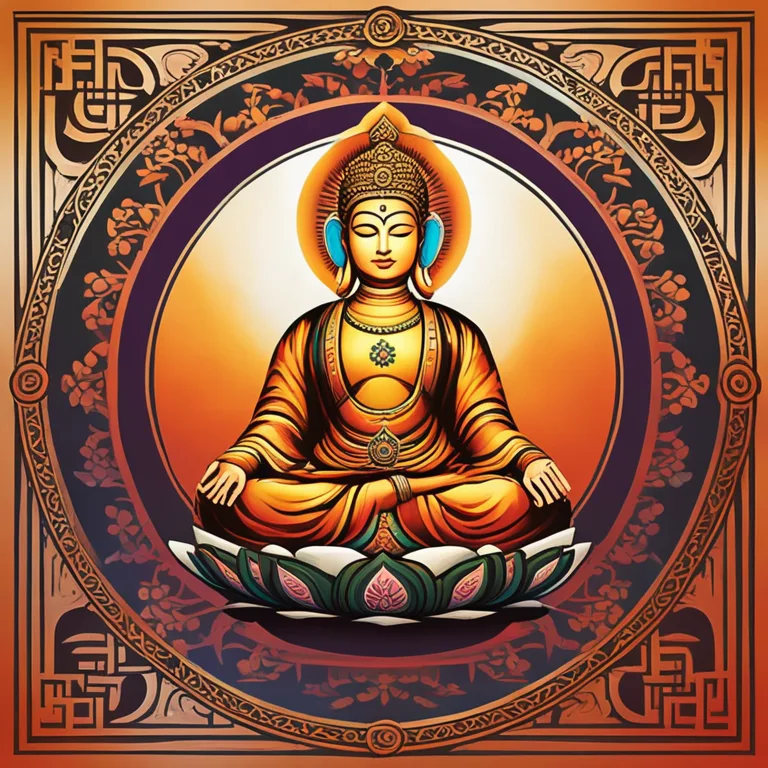
The Ancient Beginnings of Meditation Practice
Delve into the ancient beginnings of meditation, tracing its evolution from primordial traditions to modern-day techniques.
article by Hina Kurosawa
An Ancient Practice
Meditation, a practice as old as civilization itself, can be traced back thousands of years across various cultures. While the form and purpose of meditation have shifted throughout history, its core principle has always been about quieting the mind and achieving a state of deeper awareness. Early references to meditative-like techniques date back to 1500 BCE in the Hindu traditions of India, documented in the Vedas. Similarly, Buddhism, which emerged in the 6th century BCE, also emphasized meditation as a path to enlightenment. Regardless of the era, the allure of meditation as a gateway to inner peace has remained steadfast.

Advent in Eastern Traditions
Eastern traditions such as Buddhism, Hinduism, and Daoism have contributed extensively to the establishment and evolution of meditation. In Hinduism, 'dhyana,' a form of meditation, is considered a critical aspect of yoga that leads to spiritual and physical wellness. Buddhist meditation focuses on mindfulness and concentration techniques to liberate the mind from suffering, while Daoist practices aim at aligning with the rhythm of the universe. The diversity within these ancient traditions showcases the adaptability of meditation to cater to various spiritual quests.

Meditation Enters the Western World
It wasn't until the 20th century that meditation found its way en masse to Western societies. The migration of Eastern spiritual teachers to the West, combined with growing scientific interest in the practice's effects on stress reduction and mental health, brought meditation into mainstream awareness. Notably, the integration of mindfulness-based stress reduction (MBSR) programs in the late 20th century further boosted its popularity. Such programs underscore the benefits of meditation for managing stress and enhancing overall well-being without necessarily invoking its spiritual roots.

The Secularization and Science of Meditation
In the modern era, meditation has been stripped of its exclusively religious affiliations and adopted in various non-spiritual contexts, including business, education, and mental health. Pioneers like Jon Kabat-Zinn have been instrumental in this transition by promoting mindfulness outside traditional Buddhist contexts. Moreover, scientific research using technologies like fMRI and EEG to understand meditation's impact on the brain has lent credibility to its health benefits, propelling its integration into everyday self-care routines.

Technological Influence on Meditation
Today, technology plays a pivotal role in the accessibility and evolution of meditation practices. With the proliferation of meditation apps and online platforms, users can now tap into guided meditations and virtual communities from anywhere in the world. These technologies offer personalized experiences and have been critical in democratizing meditation, making it accessible to a broader population regardless of geographic or cultural barriers.
Future Trajectories of Meditation Practice
Looking ahead, meditation is set to evolve further, intertwining with advancements in virtual reality, neuroscience, and artificial intelligence. These interactions promise to deepen our understanding of meditative states and potentially unlock new ways of achieving mental clarity and tranquility. As society continues to grapple with collective stresses and the pursuit of work-life balance, meditation likely will maintain its resonance as a tool for personal and societal transformation.
Published: 1/8/2024
Modified: 1/8/2024
More predictions
Come back here soon to learn more about yourself and your future


Meditation Techniques For OCD
Mindful practices to help manage Obsessive-Compulsive Disorder symptoms effectively through meditation.


Meditation Techniques: A Handbook
Discover the breadth of meditation methods to enhance your wellness journey.


Meditation Techniques to Soothe OCD
Discover meditation practices designed to help manage OCD symptoms through mindful awareness and relaxation.